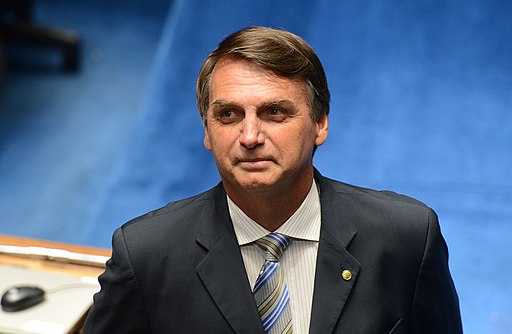
After twelve years of investigating official advertising in Colombia, the Foundation for Press Freedom (FLIP) said that this public resource is used mainly by public administrations to censor the media and influence their editorial line, as well as for leaders to promote themselves as public figures.

Brazilian President-elect Jair Bolsonaro reiterated on Oct. 29 that he intends to withdraw advertising contracted by the federal government from newspaper Folha de S. Paulo and media that, according to him, are "lying shamelessly.”
The Permanent Commission of the Peruvian Congress is evaluating a new bill that attempts to restrict state advertising only to national media and social networks. Private media would no longer receive state advertising.
The Paraguayan government offered state advertising to the owners of the more than 200 radio stations in the interior of the country in exchange for disseminating news that is favorable to the government, according to various media in the country.
A recent study by the European Broadcasting Union found that “well-funded and strong public service media goes hand in hand with signs of a healthy democracy.” Historically, funding challenges and scarce resources have plagued public media in Latin America.
Government officials have called for an investigation into claims made by one of Latin America’s most serious newspapers that the state-owned Banco Nacional of Costa Rica (BNCR) used official advertising against it.
The government of Bolivian city of Santa Cruz de la Sierra canceled the ads that usually run in local newspaper El Deber after the latter published in its website a video that shows the city's mayor Percy Fernández Áñez touching the leg of a journalist sitting next to him, the Inter American Press Association (IAPA) said last week.
More than half of journalists in Bolivia said they have suffered censorship and/or self-censorship during their professional lives, according to a presentation by researcher Virginie Poyetton on April 16 on her new book “Journalistic censorship and self-censorship in Bolivia. A perspective from within the profession itself,” reported newspaper Opinión.
Ildefonso Chávez, owner of Mexican daily El Pueblo, went on an indefinite hunger strike on Dec. 2 in front of Chihuahua State's Government Palace to protest the cancellation of state advertising in October, shortly after the newspaper published a series of stories critical of Chihuahua's governor
The government of President Rafael Correa currently holds 21 different media properties that include 14 impounded outlets, three public ones and four at the state level, according to the recent report "How the news we receive is filtered" conducted by the NGO Fundamedios.
Now that they've reached the largest social media audience in Mexico, the next step for the popular news site Animal Político is to diversify their sources of revenue and completely avoid the publicity purchased by the Mexican government, the most important advertiser for news outlets covering politics and general information in the country.
A new report found that a majority of the 32 state governments in Mexico hides information regarding their official advertising expenses in media outlets and that none of them has specific rules on how they allocate their publicity budgets. "This discretionary distribution of advertising funds weakens informative pluralism and increases suspicions of political favoritism," said the organization Fundar, which put together the second edition of the report Access to Official Advertising Funds Index along with the Mexican chapter of the press freedom organization Article 19.